Repost: TIPS FOR ALL TRAVEL LOVERS😊 a must read!!!

Alex Zivatar
LIFESTYLE
Travel Experts Reveal 10 Ways To Save On Travel
If you want to save money when traveling, check out these 10 tips from the pros.
BY JAMIE WILES
We're not mathematicians, but we're pretty sure the following theorem holds true: There is an inverse relationship between how badly you need a vacation and how comfortably you can afford one. That is, the more you need a vacation, the less likely you are to be in the financial position to pull one together. That's what it feels like in our experience, anyway. Call it the algebra of exhaustion.

But what if there's a tricky workaround? What if you could take that sorely needed week away and come home to a livable bank account? We reached out to a handful of travel agents and vacation writers to see if the dream is achievable—and it turns out, it just may be.
If I had had to pay for hotels, vacation rentals or even hostels in each of these expensive cities, I would never have been able to afford the trips.
Here's what we learned, all boiled down into 10 thrifty tips that'll save you hard-earned cash on your next getaway:
 1.
1.
Remember the Rule of Tuesdays.
Tuesday is an important day of the week in the world of air travel. If you can travel on a Tuesday or even Wednesday, you’ll probably get the cheapest flight of the week.
Generally, people do their traveling on Thursday, Friday, or over the weekend. Demand drives prices up, so you're more likely to find a cheap flight during off-peak times—usually a Tuesday or Wednesday.
At least, that's what we've always heard. But is it really true? Yes, according to news outlet CNBC. While there’s no magic day to purchase the best deals, the cheapest days to travel are Tuesday, followed by Wednesday, and then Saturday.
Airlines use algorithms to determine prices, and these are constantly being updated based off of sales and availability, says travel writer and vice president of travel company Pruvo, Doron Nadivi.
“There is also an old myth about ordering 57 days prior to travel. Both of these suggestions are not true,” Nadivi tells us.
“Last year I booked a flight from Costa Rica to New Zealand…, returning from Bangkok to Costa Rica [11] months prior to travel. I put an alarm to check 57 days before departure and the exact same flight number, same route, same website cost four times more.”
Of course, there are always the many price tracking sites out there. Some sites even show long-term price estimates for flights, so you can plan your vacation around your budget.

Still, the real trick when purchasing a flight is to follow through when the price is good. If you see a great deal, get it, now. Chances are it’ll be gone in a few hours.
The “book on Tuesday six weeks out” rule may be inaccurate, but there’s plenty of technology available to get you where you want to be for the best possible price. Use it.
- Hit the shoulder season.
This may seem obvious, but people don’t always schedule their European vacations in the depths of winter.
But if you’re not traveling for a specific holiday or beholden to strict work or school schedules, then you should consider going during the off-season of your destination.

Everyone wants to enjoy the beach or a cruise when it’s warm and sunny. But a higher number of travelers in a specific place translates directly into higher prices. If you have your heart set on your dream location, do some research on when tourist season is, then nab a cheaper deal by not going at that time, that is, when all the other tourists are no longer interested.
“The general seasonal outline goes: Northern Hemisphere: High season is from May to late September, low season is from October to April. For the Southern Hemisphere: High season is from Later November till after Easter, low season from May till November,” says Nadivi.
There’s also a thing called the “shoulder season”, which falls right in between the busy and dead times for an area.
It’ll keep you from completely missing out on the ideal weather, while still taking advantage of fewer tourists and lower-than-normal prices.
- Be a little impulsive.
There are pros and cons to this tried-and-true technique for a quick escape from the day-to-day grind. But asking for a "cheap ticket to anywhere" doesn't work like it used to.
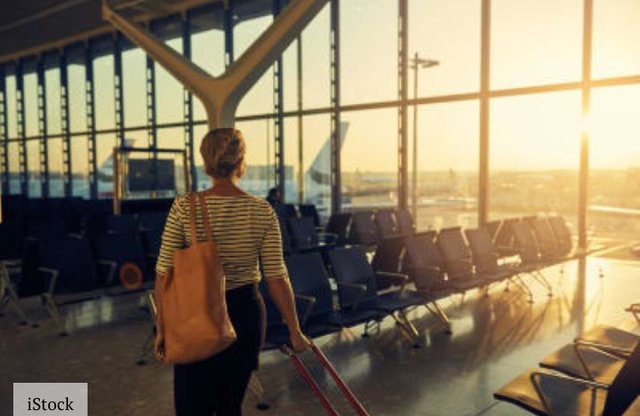 )
)
Everyone wants to enjoy the beach or a cruise when it’s warm and sunny. But a higher number of travelers in a specific place translates directly into higher prices. If you have your heart set on your dream location, do some research on when tourist season is, then nab a cheaper deal by not going at that time, that is, when all the other tourists are no longer interested.
“The general seasonal outline goes: Northern Hemisphere: High season is from May to late September, low season is from October to April. For the Southern Hemisphere: High season is from Later November till after Easter, low season from May till November,” says Nadivi.
There’s also a thing called the “shoulder season”, which falls right in between the busy and dead times for an area.
It’ll keep you from completely missing out on the ideal weather, while still taking advantage of fewer tourists and lower-than-normal prices.
- Be a little impulsive.
There are pros and cons to this tried-and-true technique for a quick escape from the day-to-day grind. But asking for a "cheap ticket to anywhere" doesn't work like it used to.

To improve your odds of scoring a deal, try to visit less popular cities. For instance, Aspen, Colorado is a beautiful ski town, but it’s also busy and expensive.
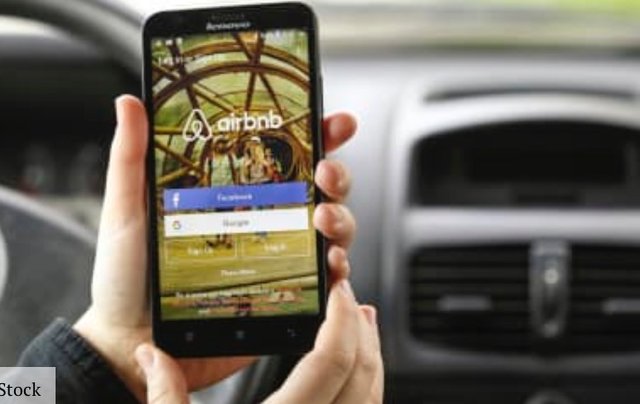
Why not hit the slopes in Lake Tahoe, Nevada, or Brian Head, Utah, instead? You can beat the crowds, save some cash, and discover new places with this tactic.
Through these and similar services, you can find great deals on short-term house rentals instead of booking a bunch of hotel rooms for larger travel parties. There are also smaller sites in most every major city that will have a listing of units that are available for travelers to rent. Do your research and you’ll find the options are practically endless—and very affordable.
You can also use home-sharing apps and basically stay in a new city for free "in exchange for caring for someone else's home and pets,” says author and world-traveler Kelly Hayes-Raitt, who traveled the world for four years straight while reporting her book, Living Large in Limbo, and racked up quite a few tricks during the process.
“I get unpaid accommodations, a kitchen to make my own meals and other homey perks like free cable and DVDs, use of a car, and no nickel-and-dime fees hotels tack on.”

- Ditch the hotel.
Hotels are great, but with a new generation of travelers hotels have taken a hit. Just like Uber and Lyft are changing the world of ground transportation, Airbnb and VRBO are laying siege on the hotel industry.
There are sites to set up accommodations for travelers to house-sit, or to actually swap homes for a period of time. This is a great way to get to know a new city without spending a ton of money.
“During the past eight years, I've house-sat in London for two months during the Olympics, Berlin, Amsterdam, Hanoi, Singapore, Kuala Lumpur, Penang and Osaka," Hayes-Raitt tells us.
"If I had had to pay for hotels, vacation rentals or even hostels in each of these expensive cities, I would never have been able to afford the trips."
- Get off the plane.
If you have some wiggle room for your travel plans, let the gate attendant know. That way you can be put on the short list if they need volunteers. If you're flying on United or Delta, you can bid on how much money it'd take for you to give up your seat. After the David Dao debacle of 2017, United Airlines has raised the cap on how much they're willing to pay for passenger seats on overbooked flights to $10,000. That would make for some vacation.
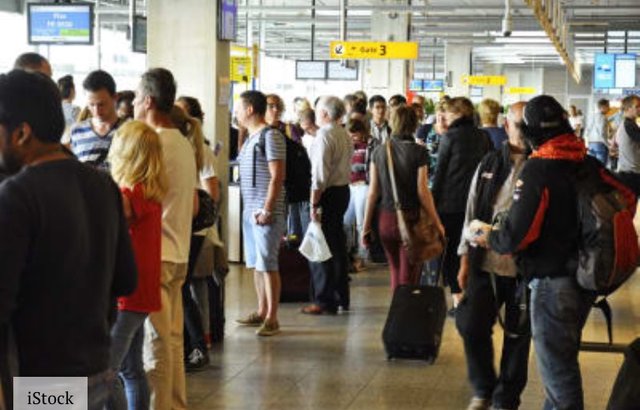
There are sites to set up accommodations for travelers to house-sit, or to actually swap homes for a period of time. This is a great way to get to know a new city without spending a ton of money.
“During the past eight years, I've house-sat in London for two months during the Olympics, Berlin, Amsterdam, Hanoi, Singapore, Kuala Lumpur, Penang and Osaka," Hayes-Raitt tells us.
"If I had had to pay for hotels, vacation rentals or even hostels in each of these expensive cities, I would never have been able to afford the trips."
- Get off the plane.
If you have some wiggle room for your travel plans, let the gate attendant know. That way you can be put on the short list if they need volunteers. If you're flying on United or Delta, you can bid on how much money it'd take for you to give up your seat. After the David Dao debacle of 2017, United Airlines has raised the cap on how much they're willing to pay for passenger seats on overbooked flights to $10,000. That would make for some vacation.
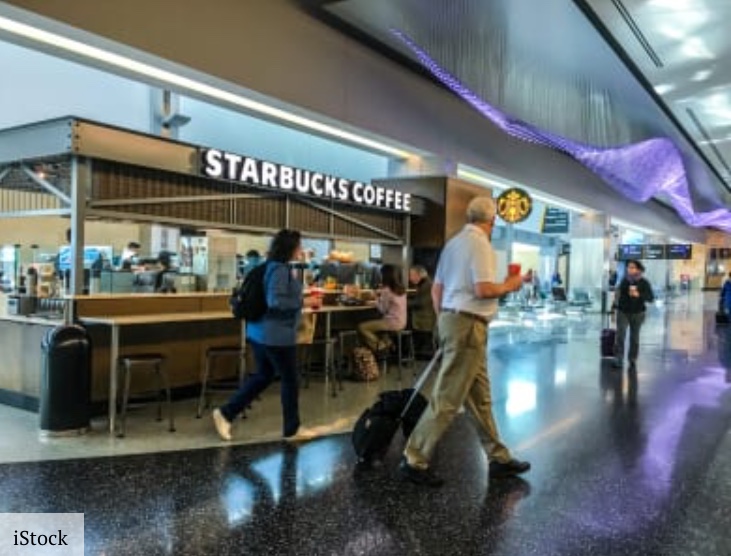
two months during the Olympics, Berlin, Amsterdam, Hanoi, Singapore, Kuala Lumpur, Penang and Osaka," Hayes-Raitt tells us.
"If I had had to pay for hotels, vacation rentals or even hostels in each of these expensive cities, I would never have been able to go.
With everything going on after the United incident, you should know that airlines do have the right to remove any passenger (except for people with disabilities and unaccompanied minors).
- Brown bag it.
We know a granola bar isn’t the same as that breakfast burrito you could buy at the airport, but it could save you a good chunk of change.
Airport food tends to be more expensive than the already-pricey food at professional sporting events and theme parks, so if you have some time to spare, make yourself a meal and bring it.
Some food is okay to pass through security, and if you have kids, you can always bring powdered milk and make them a drink in the airport instead of hitting up the terminal’s Starbucks. If you don't have time to make something yourself, you can still pass over the expensive airport-specific restaurants.
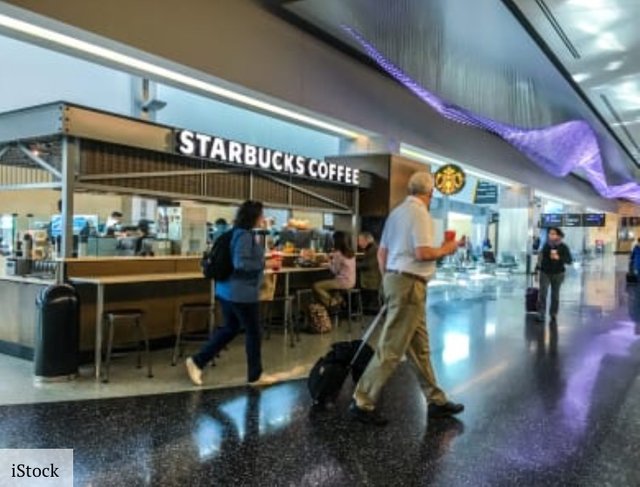
One of our favorite options is going to Subway and getting a footlong sandwich, then eating half at the airport and half on the flight.
You can save yourself some good money this way. (Just don't get the tuna; your fellow passengers won't thank you for that.)
After you arrive at your vacation spot, take advantage of any local grocery stores and cook for yourself.
Purchasing food, even pre-made meals, at a grocery store instead of eating out all the time will save you a fortune while you’re traveling.
- Hydrate on the cheap.
Everyone knows you can’t bring liquids through security, including water. But you can bring an empty water bottle and fill it at a water fountain or fill station.

It's crucial to drink up on the plane; people tend to get really dehydrated when they travel because of the recycled air, the altitude, and the fact you don’t really drink a lot of liquids while you're in flight (no one likes asking people to get up so they can use the restroom).
This will keep you hydrated and save you from buying a $4 bottle of water.
- Find new ways to get around.
Asking a friend to pick you up from the airport is almost as bad as asking them to help you move. Nobody wants to do it, but most people don't feel like they can say no. However, in most major cities, there is public transportation that can take you to and from the airport.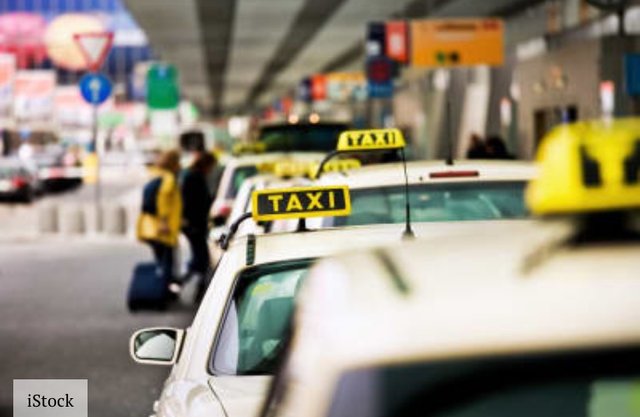
If you don't have easy access to public transportation, you can try to take an Uber or Lyft, which will often save you some money compared with a taxi, which may overcharge via a large airport tax. Be aware, though, that in some cities, Uber and Lyft cannot pick up passengers from the airport.

Do some research on your destination’s transportation before you go. Both the Google Maps app and the Citymapper app can provide you with information and schedules for trains, busses, and more.
Where possible, take the monorail, subway, or bus instead of a taxi. Alternatively, you can always take the opportunity to explore the city on foot and walk to your final destination.
- Take a cue from extreme couponers.
There are coupons for literally everything. If you know you’re going to be in a new city, take advantage of the ones that are for first-time customers only. Apps like Groupon and LivingSocial have deals for activities and food that could cut your costs in half.

Another way to go about saving money on food is searching hashtags on Instagram for specific locations.
If you find food pics that look appetizing, get in touch with the restaurant and see if they have any special deals or happy hours.
- Book directly.
Airlines often offer more flexibility and cheaper fees than third-party sellers. A lot of websites will scour the internet for the best deals—which is great if you’re short on time or organizational skills—but then you usually get stuck with few options and little flexibility, since you're booking through a third party.
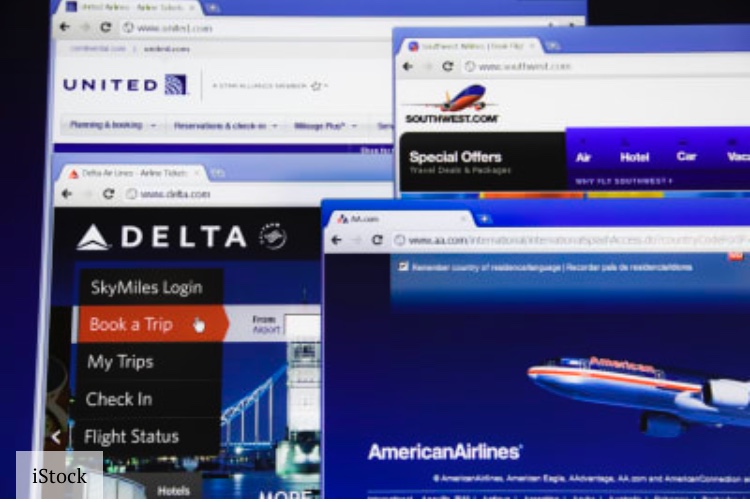
The best thing to do is use a search site like Skyscanner or Google Flights to find the cheapest flight, then head over to that airline's website and book directly through them. When you book direct, you’ll get cheaper flights, and usually more flexibility and options for your trip.
These tips won't just save you money on vacation. They might bring down the cost of a trip just enough that you can safely afford it in the first place. Follow our experts' advice, and you could balance the equation that allows for a truly restorative—and much-deserved—adventure.
Happy travel everyone....
All credit to the owner for pictures and info..